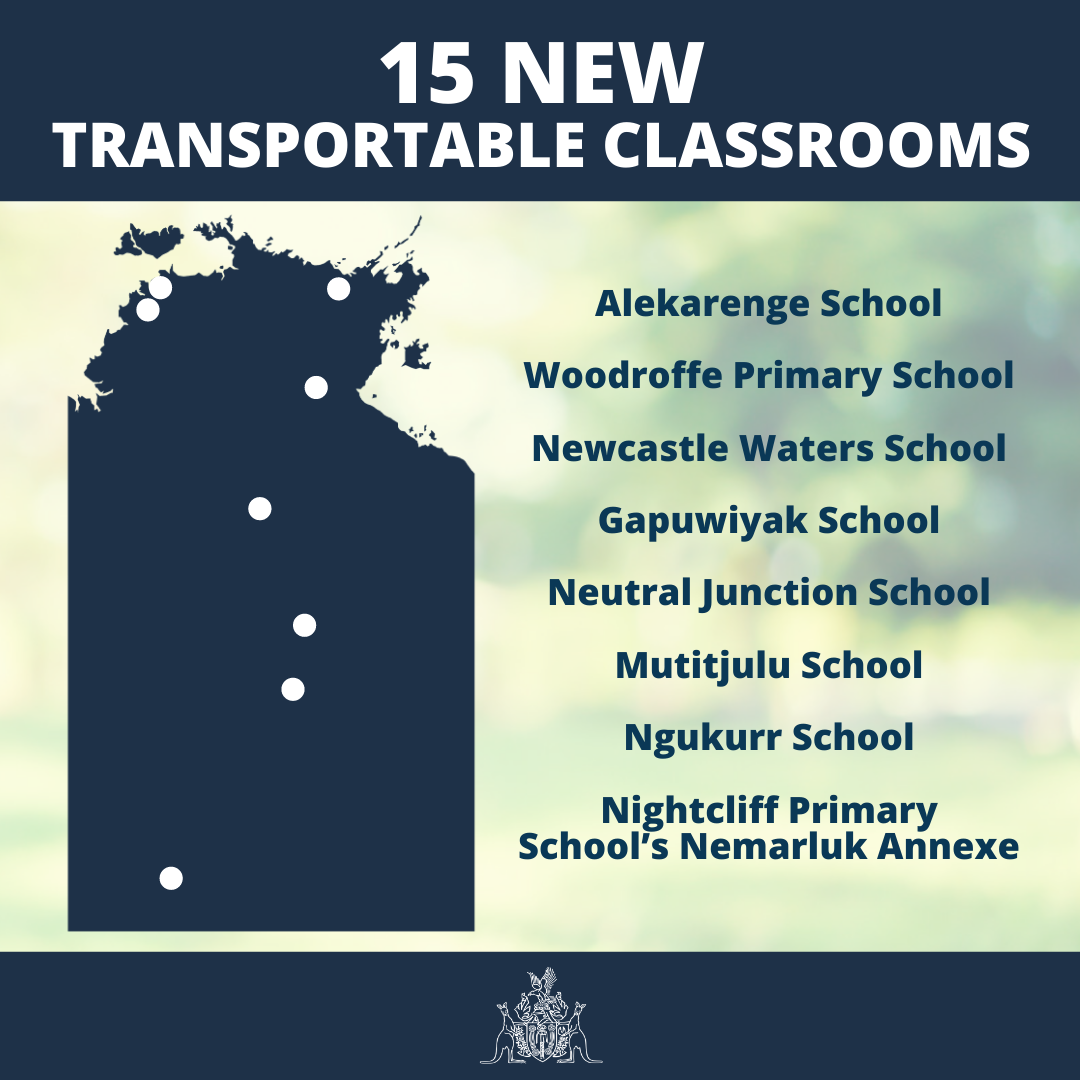In this bulletin:
- School funding for 2021
- Some good news on infrastructure
- School term dates consultation
- Union encouragement policy
School funding for 2021
During the height of the coronavirus panic the AEU NT sought assurances from the Minister and the Department of Education that schools would not be penalised in their funding for 2021 due to irregular student attendance. We argued that Semester 1 attendance data should not be used to allocate funding for schools for 2021, given the unusual circumstances, and that no school should be worse off in 2021 due to the impact of the pandemic on attendance.
However, according to DoE, school attendance across the system has been higher than average, with Term 3 attendance the highest in three years. Principals were consequently informed that budgets for 2021 would be calculated as normal. The AEU NT’s concern is that higher than average attendance across the system may not tell the full story: members in numerous remote schools have reported to our office lower than normal attendance, including in Term 3. We have again sought assurances that schools will not be worse off. The most recent announcement from the Chief Executive is encouraging:
“Preliminary school budgets for 2021 will be released by 16 October and will be allocated using the current model which distributes funds according to student need. The total budget to be distributed to schools will be higher than 2020 and we know that in some cases, attendance in Term 1 and Term 2 was higher in a number of schools compared to the same time last year. The Finance and Education NT teams are currently reviewing the distribution of funding to ensure that no school is disadvantaged as a result of COVID-19.”
The Full-Time Officers will be receiving a briefing from DoE finance officers tomorrow and will monitor the situation closely.
Some good news on infrastructure
Eight schools received good news this week with the announcement that they will receive 15 transportable classrooms between them. Ten of the 15 will go to remote communities, including three new buildings for Alekarenge School, for which the AEU NT has campaigned strongly for a full rebuild.
This is great news for these schools, however we know that other schools also in need have missed out, and a huge backlog remains. The consistent message from government is that there is no money for new school infrastructure. Capital works spending has declined sharply in the past two budgets. The AEU NT will continue to push for investment in new school infrastructure, especially in remote areas.

School term dates consultation
The Minister for Education is responsible for setting the school calendar, including the lengths of school terms and holiday breaks. School calendars are typically set at least two years in advance for a five-year period. To prepare a recommendation to the Minister, the Department is consulting the AEU and other stakeholders ahead of gazetting school dates for the years 2023-2027 (with a decision to be made by the end of 2020).
Consistent with Conference and Executive decisions, the AEU NT advocated for the following three outcomes:
1) Wherever possible, the school year should be four terms of 10 weeks each (noting the Minister already approved a variation of dates for 2021 and 2022 to do this in response to feedback from teachers and principals).
2) Differentiated calendars for urban and remote schools be abolished. All schools should start and finish on the same day, in line with the current remote calendar. This would reduce confusion and remove the situation where in some years, urban teachers are required to commence on a Thursday or a Friday immediately preceding the Australia Day long weekend, meaning their working year is several days longer than their remote counterparts.
3) The Department should review the impact on staff, students and families of the change to a 1-3-2 school holiday structure since it commenced in 2018, with consideration given to returning to a 1-4-1 model of school holidays if this model is found not to be achieving its stated objectives.
Wider consultation will take place once this phase is completed. The AEU NT urged DoE that this time, consultation is more robust, involving genuine consultation with staff, unlike in 2015, when several proposed school holiday models were voted on by the public in an anonymous survey.
Union encouragement policy
Before the recent election, the NT Government endorsed changes to the Commissioner’s Guideline on Working with Unions. The guide already contained numerous protections for union members and reps within the NTPS. The guideline now includes a Union Encouragement clause, which we urge you to familiarise yourself with. Notably, the new policy directs managers and executives from discouraging employees from union membership and activity:
“All executives, managers and supervisors should cooperate to ensure the NTPS continues to encourage union membership. Encouragement requires executives, managers and supervisors to adopt a positive and supportive role, not simply passively accept membership recruitment and representative activity by unions.
“The personal views of executives, managers and supervisors are not to be used to discourage employees from union membership or neglect to facilitate union membership in the ways provided for in this policy or enterprise agreements. Executives, managers and supervisors are not to directly or indirectly impede legal union activity.”
For the most part, the AEU NT has very good relations with managers and executives and seeks mutually beneficial outcomes. Sadly, there are a few who view the union as a nuisance rather than a legitimate and constructive presence in the workplace. This new policy makes it clear that such an attitude is not in keeping with NTPS industrial relations practices.
Further information
Download this bulletin in PDF format

